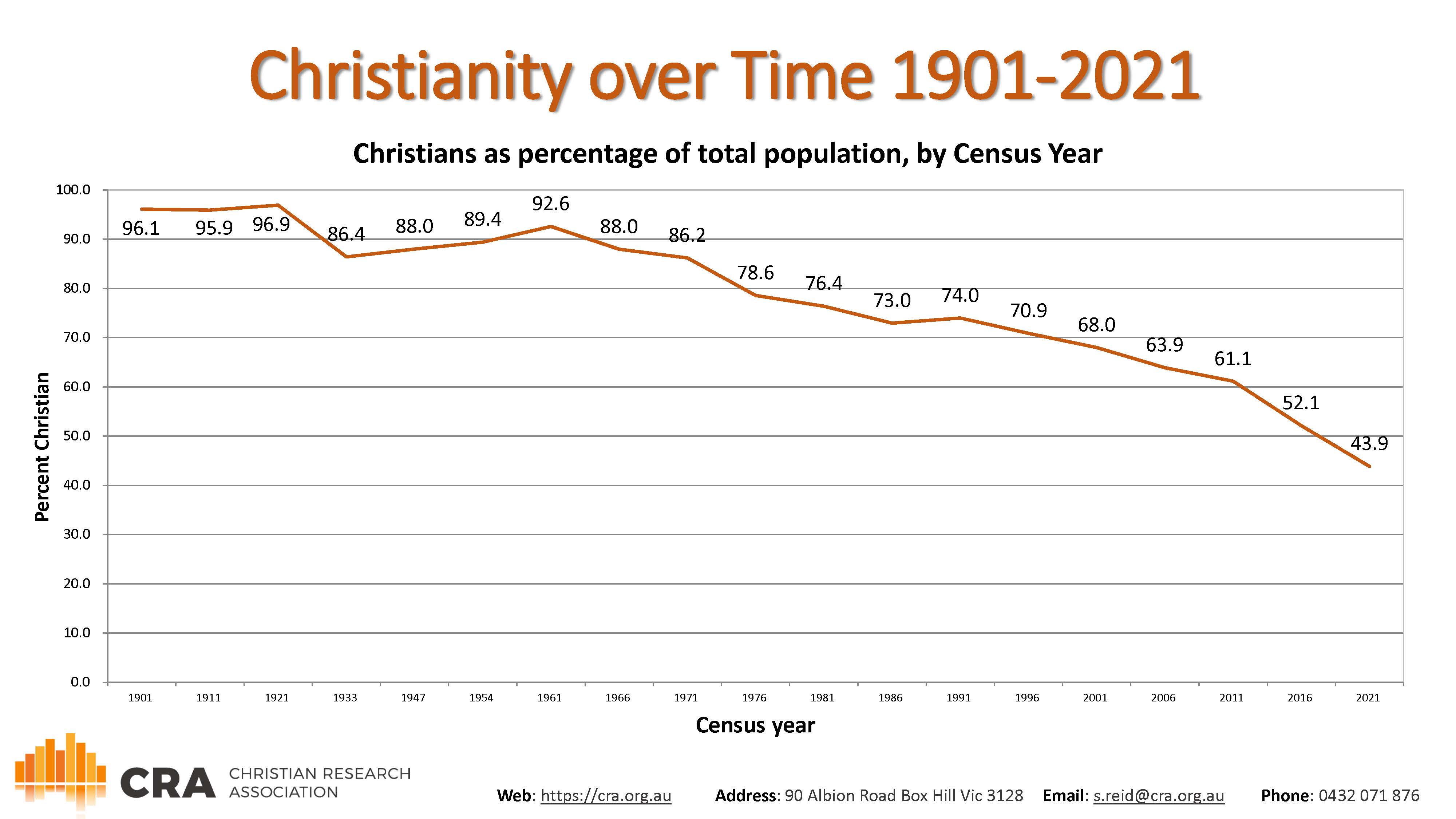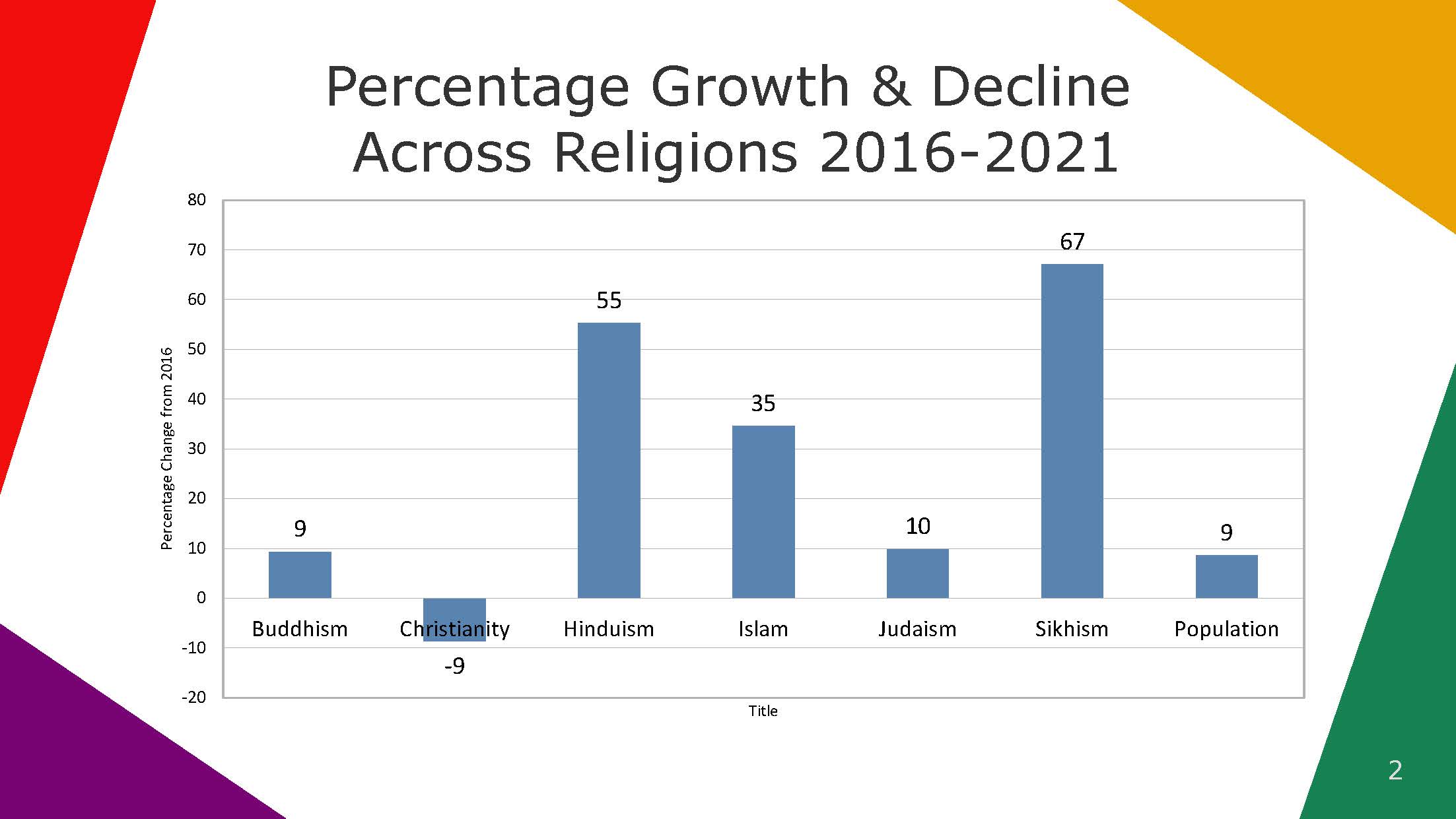The cultural focus on personal fulfilment rather than on family roles and duties is one of several key factors in the decline of Australians identifying as Christians, according to Professor Philip Hughes.
Other significant factors are an ageing population and immigration trends, Professor Hughes explained during a webinar on July 27 exploring the latest Australian Census results.
The event was jointly hosted by the National Centre for Pastoral Research and the Christian Research Association, in response to the Australian Bureau of Statistics’ June release of the first sets of data from the 2021 Census.
Professor Hughes, a former director of the Christian Research Association and currently Professor of Research with Alphacrucis University College, highlighted a range of different patterns emerging across denominations and age groups.
He said one of the major theories explaining the decrease in Australians identifying as Christians – down from 52 per cent in 2016 to 44 per cent in 2021 – is that increasing secularisation is related strongly to values.
 “Part of the change has occurred because there’s been a change in values from a focus on family roles and duties to a sense of personal fulfilment,” he said.
“Part of the change has occurred because there’s been a change in values from a focus on family roles and duties to a sense of personal fulfilment,” he said.
“So life is defined far more today, for most people in the Western world, on personal fulfilment, and comparatively little on family roles and duties.
“The Christian faith has supported strongly the focus on family life, but it hasn’t been seen to support in the same way this sense of personal fulfilment and the diversity of lifestyle and sexual orientation that’s been implied by that.
“That has been a major reason for people moving away from identification with religious faith, and Christian faith in particular, and identifying themselves as having no religion.”
Stephen Reid, who works for both the National Centre for Pastoral Research and the Christian Research Association, examined the increased number of Australians professing no religion (it reached 39 per cent in 2021), suggesting there was more to the data than perhaps first meets the eye.
“The ‘no religion’ option was introduced in 1971 and it’s very different to ‘not stated’,” he said.
“It does not necessarily mean atheist or agnostic; in fact in 2021, just 0.29 per cent of Australia’s population identified as atheist or agnostic or rationalist. ‘No religion’ basically means ‘I do not want to identify with a religious institution’, and I think we need to remember that.
“Some of the growth that we’ve seen from the previous couple of censuses may reflect some of the trends in secularisation in Australia. However, other survey data tells us that there’s many who describe themselves as having no religion, but consider themselves spiritual nonetheless.
“Some other data suggest that about one-quarter of the population see themselves as spiritual, but not religious, and that proportion has been consistent over the past decade or longer.”
 Professor Hughes also discussed the effects of immigration on the religious affiliation data, which has seen the number of Sikhs, Hindus and Muslims increase more than other religions.
Professor Hughes also discussed the effects of immigration on the religious affiliation data, which has seen the number of Sikhs, Hindus and Muslims increase more than other religions.
“A major source country of immigrants in the last five years has been India, and that has led to the growth in the Hindu and Sikh communities. Other source countries include Afghanistan, Iraq and Iran, and certainly they’ve contributed to growth in Islam,” he explained.
“A lot of immigrants arrive in their 20s, they have children within the next 10 years, and so immigrants also provide a lot of growth through the birth of their children.”
The decline in the number of Christians, which Professor Hughes said was “right through all age groups”, was especially evident in denominations that have a strongly northern European origin, and was also greater in rural areas rather than in urban areas.
“Again, the major factor making a difference there is the number of immigrants coming in,” he said. “Most [immigrants] settle, at least at the beginning, in our major cities, so that’s having an impact.”
Professor Hughes concluded by asserting that improving services or having better pastoral care would not reverse the statistical trends.
“I think we need to look at how people are in fact seeking for meaning these days and look at the ways in which they’re forming meaning and nurturing their sense of spirituality,” he said.
“Perhaps by understanding that better, we can better serve the broader population.”
View the recording of the July 27 webinar at: https://www.youtube.com/watch?v=smkUXjqANUQ
Links
National Centre for Pastoral Research: https://ncpr.catholic.org.au/
The Christian Research Association: https://cra.org.au/
Images: Supplied
Words: Matthew Biddle



